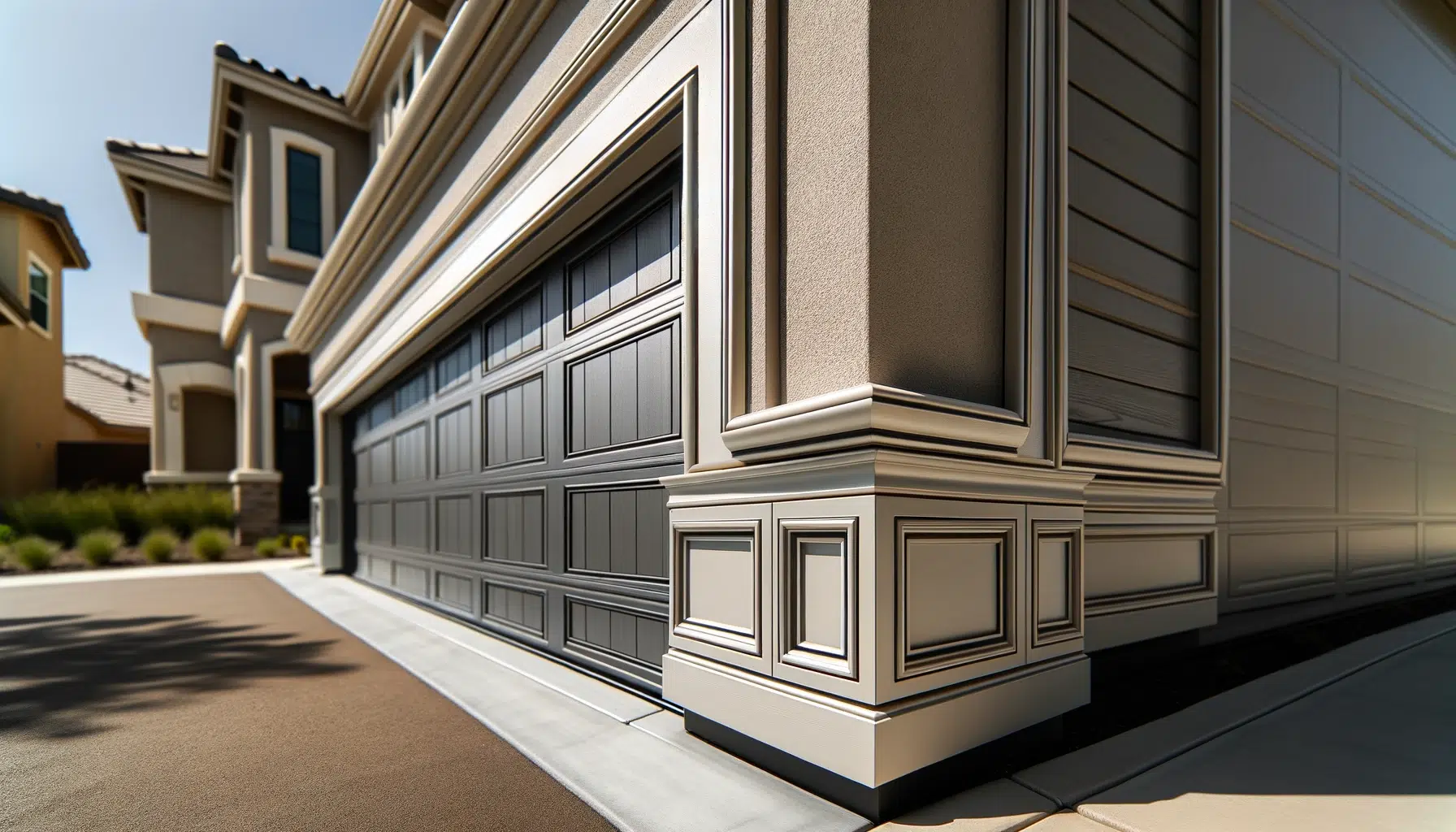
10 Best Grease for Garage Doors in 2024
Proper maintenance is essential for ensuring the longevity and efficiency of garage doors. One key aspect of this maintenance is the regular application of high-quality grease, which can significantly reduce friction and prevent wear on moving parts. Choosing the best grease for a garage door is crucial, as it not only enhances the door’s operation but also protects it from rust and corrosion.
As we head into 2024, a variety of greases have emerged as top contenders for keeping garage doors operating smoothly. In this article, we’ll explore the 10 best greases for garage doors, highlighting their unique properties and benefits. These products ensure optimal performance and durability for your garage door mechanisms, whether for residential or commercial use.
1. Super Lube Synthetic Grease
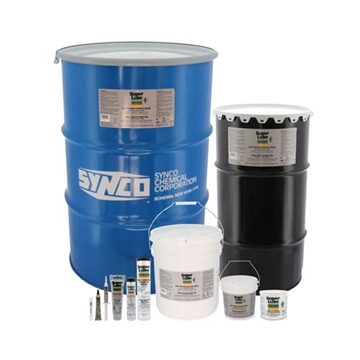
Super Lube is renowned for its synthetic formulation that includes Syncolon (PTFE) particles, which reduce friction and wear. It’s non-toxic, waterproof, and protects against rust and corrosion, making it ideal for both residential and commercial garage doors.
2. WD-40 Specialist White Lithium Grease
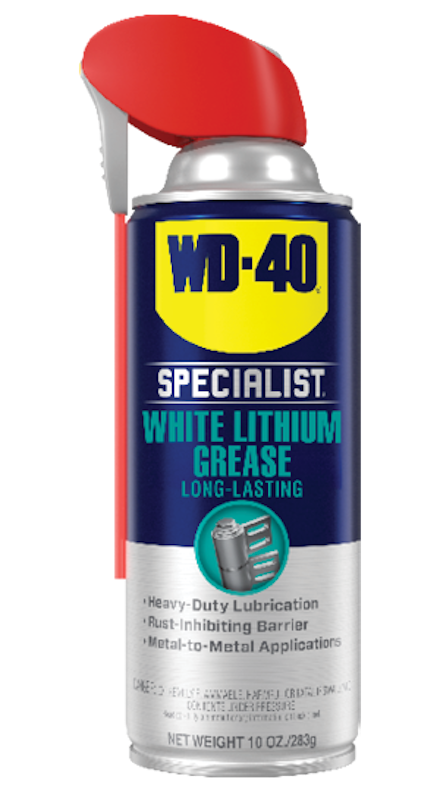
This grease from WD-40 is perfect for heavy-duty applications, thanks to its high-viscosity formula. It provides excellent lubrication and protection against rust and corrosion. It’s also great for metal-to-metal applications, ensuring smooth operation in different weather conditions.
3. CRC White Lithium Grease
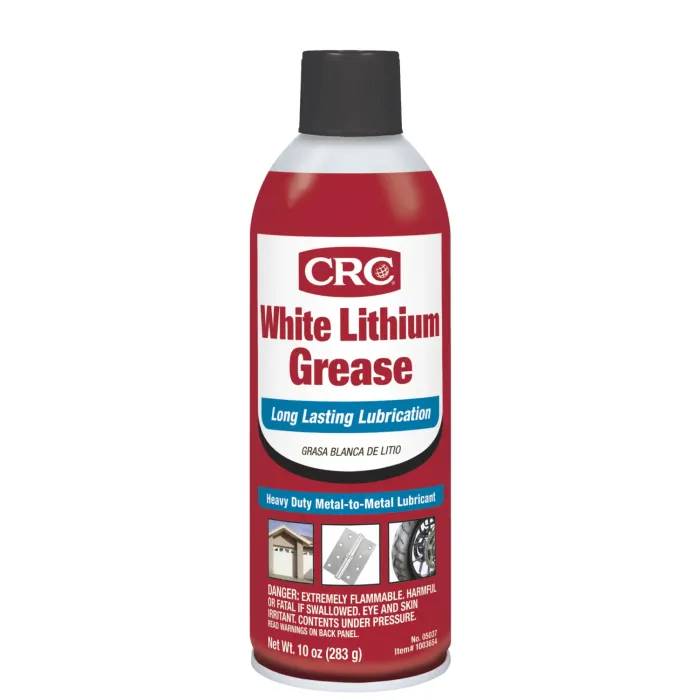
CRC’s White Lithium Grease is known for its robust formulation, suitable for outdoor environments. It helps prevent rust and corrosion on metal parts, making it a reliable choice for garage doors that are frequently exposed to the elements.
4. 3-IN-ONE Professional Garage Door Lubricant
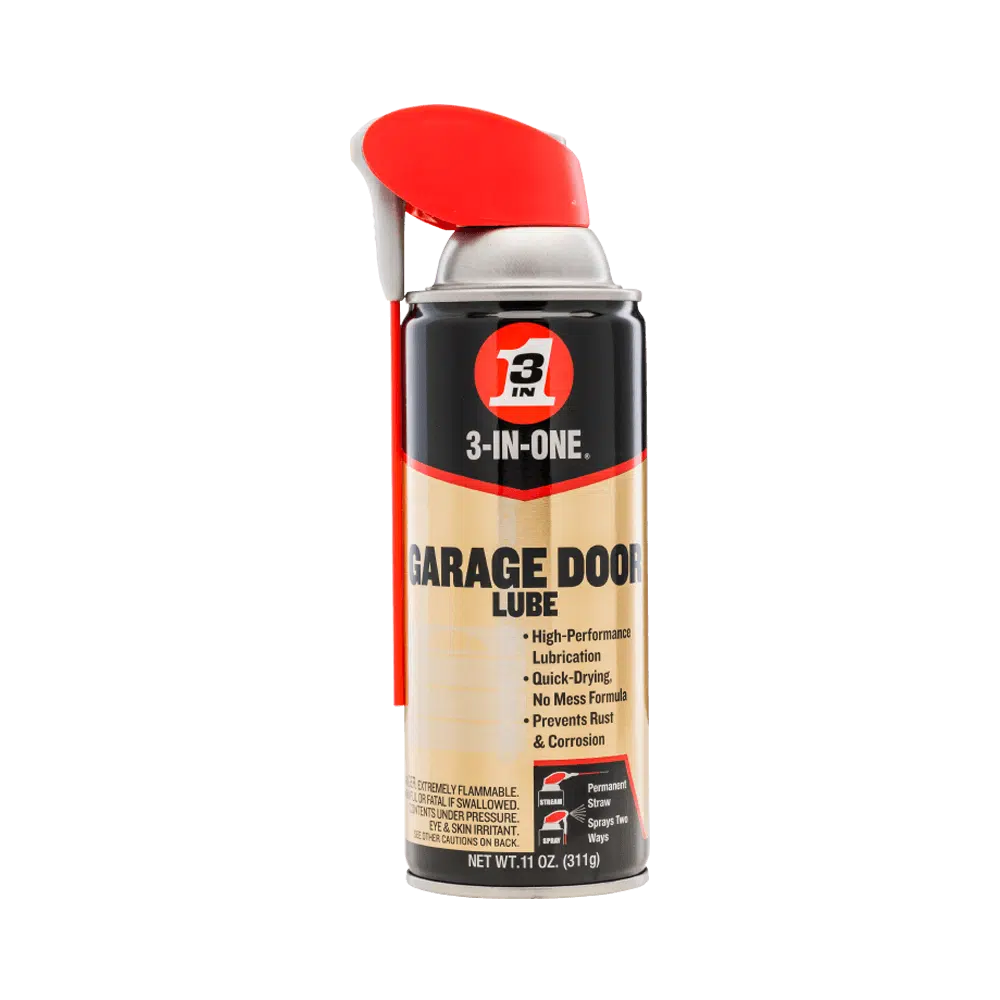
Designed specifically for garage doors, this lubricant by 3-IN-ONE offers quick-drying, mess-free application. It prevents sticking and squeaking, reducing the need for frequent reapplications.
5. Liqui Moly White Grease
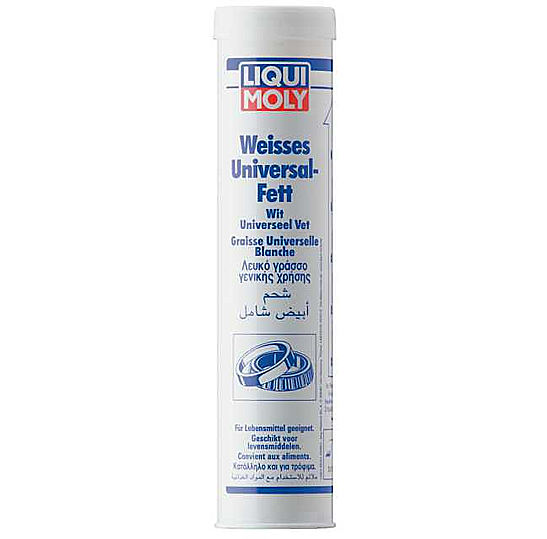
Liqui Moly’s White Grease is designed for optimum adhesion to vertical surfaces, making it excellent for garage door tracks and rollers. It resists water and protects against wear and corrosion, ensuring smooth operation.
6. DuPont Teflon Silicone Lubricant
The DuPont Teflon Silicone Lubricant is perfect for those seeking a non-greasy option. It helps waterproof, protect, and improve the function of garage door components without attracting dirt and debris.
7. Permatex White Lithium Grease
Permatex offers a durable grease that ensures long-lasting lubrication and protection against rust and corrosion. It’s particularly effective in temperature extremes, suitable for both hot summers and cold winters.
8. Royal Purple Synthetic Bearing Grease
Royal Purple’s grease uses synthetic oils along with proprietary additives to enhance the performance of garage door mechanisms. It offers superior protection against corrosion and significantly reduces friction.
9. Lucas Oil Red ‘N’ Tacky Grease
This grease from Lucas Oil is a popular choice for its sticky formulation that stays in place under high loads and speeds. It’s excellent for garage door screws, hinges, and rollers, providing a smooth operation.
10. Finish Line Premium Grease
Finish Line’s Premium Grease uses a special polymer formula that withstands extreme weather conditions and reduces friction. It’s ideal for those who require a heavy-duty lubricant that minimizes the need for frequent maintenance.
Should you grease garage door tracks?
No, you should not grease the tracks of a garage door. Greasing the tracks can cause the door to become unbalanced and make it more difficult for the rollers to move efficiently. Instead, you should focus on lubricating the rollers, hinges, and springs of the garage door with a suitable lubricant. A silicone-based or lithium-based grease is typically recommended for these components because it does not attract dirt and debris, which can clog the system. Just make sure the tracks themselves are clean and free of any buildup or residue to ensure smooth operation.
Maintenance of Garage Door
To maintain your garage door and keep it operating smoothly and quietly, follow these maintenance steps:
- Lubricate Moving Parts: Apply a silicone-based or lithium-based spray lubricant to your garage door’s rollers, hinges, and springs. Avoid using WD-40 as it is a solvent, not a lubricant. Proper lubrication reduces friction and noise.
- Tighten Up the Hardware: The vibration of a garage door in operation can loosen screws and bolts over time. Check and tighten all roller brackets and bolts with a socket wrench to ensure they are snug.
- Check the Rollers: Inspect both steel or nylon rollers for wear and tear. If they are worn, chipped, or cracked, consider replacing them. Worn rollers can cause a lot of noise and affect the smooth operation of your garage door.
- Inspect the Door Opener: If the garage door opener is not operating correctly, it can be a source of noise. If it’s a chain-driven opener, check the chain for proper tension and lubricate it as well.
- Check the Springs: The torsion springs or extension springs that help lift your garage door can break down over time and may need adjustment or replacement. This is a dangerous task and should ideally be performed by a professional.
- Test the Door Balance: Disconnect the automatic opener and manually open the door halfway. If it doesn’t stay put, the springs may be improperly balanced. This requires adjustment from a professional, as imbalanced springs can strain the opener and produce excessive noise.
- Inspect and Replace the Weatherstripping: Worn or cracked weatherstripping can let more than just the elements into your garage. Check the stripping at the bottom of the door and replace it if necessary to keep everything running smoothly and quietly.
- Clean and Align the Tracks: Make sure the tracks are free of debris or rust and properly aligned. Misaligned tracks can cause binding and noise. However, adjusting tracks is a job for a professional.
- Schedule Professional Maintenance: Sometimes, it’s best to have your garage door professionally serviced to ensure everything is in top shape, especially if you notice significant issues.
By routinely performing these maintenance tasks, you can extend the life of your garage door and minimize noise and other operational issues.
Choosing the Right Grease
When selecting the best grease for a garage door, consider factors like material compatibility (metal, plastic, rubber), weather resistance, and whether the product attracts dust and dirt. Applying the correct type of grease can significantly improve the operation of your garage door and reduce the noise level during operation.
Properly maintaining your garage door with one of these top greases will ensure smoother, quieter operation and extend the life of its components. Whether you’re dealing with extreme temperatures or just regular wear and tear, there’s a product on this list that can meet your needs.
Conclusion
In conclusion, selecting the best grease for your garage door is a pivotal step in maintaining its functionality and longevity. Each grease listed above offers unique benefits, from high viscosity for heavy-duty applications to advanced formulations that resist extreme weather conditions. It’s important to consider the specific needs of your garage door system, such as the type of materials used and the environmental conditions it faces.
By choosing a product tailored to these factors, you can ensure that your garage door remains in top condition, operates smoothly, and is free from disruptive noises. Regularly applying one of these top greases will not only prolong the life of your garage door but also enhance your overall user experience. Ultimately, investing in high-quality grease is a wise decision for any homeowner or commercial operator looking to optimize the performance of their garage doors. Remember these recommendations to choose the best possible product for your needs.

